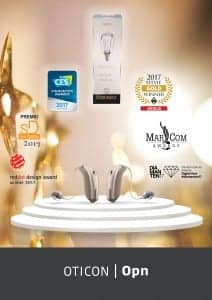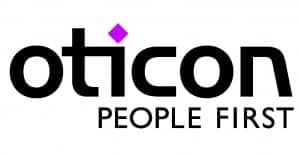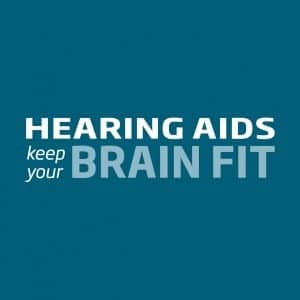Keeping your brain fit so that you can stay sharp, engage socially, and participate in professional or volunteer activities is a concept that appeals to a wide range of age groups, from young adults to baby boomers and beyond. While many strategies for “healthy aging” exist, the newest evidence points to the important role of hearing health in maintaining quality of life long-term, according to a press release from Oticon, a Denmark-based hearing aid manufacturer.
Keeping Your Brain Fit
If you are among the 75% of people with hearing loss who could benefit from hearing aids but are reluctant to take action, the newest research findings may be the powerful motivator you need. A study1 published in the Journal of the American Geriatrics Society found no difference in the rate of cognitive decline between people with no reported hearing loss and people with hearing loss who used hearing aids. In fact, people with hearing loss who wear hearing aids had the same risk for age-related cognitive decline as people without hearing loss. When you actively use hearing aids, you are more likely to stay socially engaged, one of the primary ways to stimulate your brain, according to Oticon.
A “Brain First” Approach
Today’s advanced hearing aid technology takes into consideration the critical role that the brain plays in hearing. For almost 20 years, Oticon researchers at the Eriksholm Research Centre have focused on a “brain first” approach that processes the speech signal so it is presented to the brain as clearly and accurately as possible. With better sound information, the brain doesn’t have to work as hard to understand what is being said, said Oticon in the release.
Oticon hearing instruments with BrainHearing™ are an example of the “brain first” approach. By giving the brain a clearer, more accurate sound signal, Oticon hearing aids with BrainHearing™ are designed to make it easier to understand conversation—even in noise.
Easy on the Brain, Easy Connectivity
The Oticon Opn is designed to improve a user’s ability to understand speech by up to 30%2, so a user doesn’t have to work as hard to understand, leaving more mental energy to remember what you hear, according to Oticon. Opn is designed to process sound at extreme speed to remove distracting noise, even between words and makes it easier to follow conversation, even in environments with multiple people speaking, such as crowded restaurants.
The newest BrainHearing solution also connects directly to compatible mobile phones and other external devices so users can stay connected on the go; audio can be streamed directly to your hearing aids. Opn is also “the world’s first hearing device that is connected to the Internet via the IFTTT network,” a web service that automates other web-based functions, according to the company’s press release. You can use Opn hearing aids with a growing number of IFTTT-compatible products and services from wake-up notices and sports reports to practical considerations such as low battery alerts and connections to smart home devices.
Refocusing the Brain
There are many ways to take control of your tinnitus and reduce its impact on your life. A hearing care professional can help you manage your symptoms through education, counseling, and sound therapy. Oticon Opn hearing aids with built-in Tinnitus SoundSupport™ are designed to direct the user’s focus away from tinnitus by playing a range of adjustable relief sounds like white noise and ocean-like sounds.
Hearing Care is Health Care™
When it comes to healthy aging, it makes sense to take care of your hearing health, just as you care about the rest of your health. The World Health Organization estimates that more than 360 million people worldwide suffer from hearing loss.3 Many of them aren’t aware of it or are putting off treatment. If you’re one of them, you owe it to yourself to visit a hearing care professional for a hearing evaluation. Your future as an active, engaged, healthy person could depend on it.
References
1. Amieva H, Ouvrard C, Giulioli C, Meillon C, Rullier L, Dartigues J-F. Self-reported hearing loss, hearing aids, and cognitive decline in elderly adults: A 25-year study. Journal of the American Geriatrics Society. October 20, 2015; 63 (10): 2099–2104.
2. Le Goff, et al. 2016, Opn Clinical Evidence White Paper, Oticon, A/S.
3. WHO.com. (n.d.). Retrieved July 24, 2017, from: http://www.who.int/mediacentre/factsheets/fs300/en/
Source: Oticon
Images: Oticon








